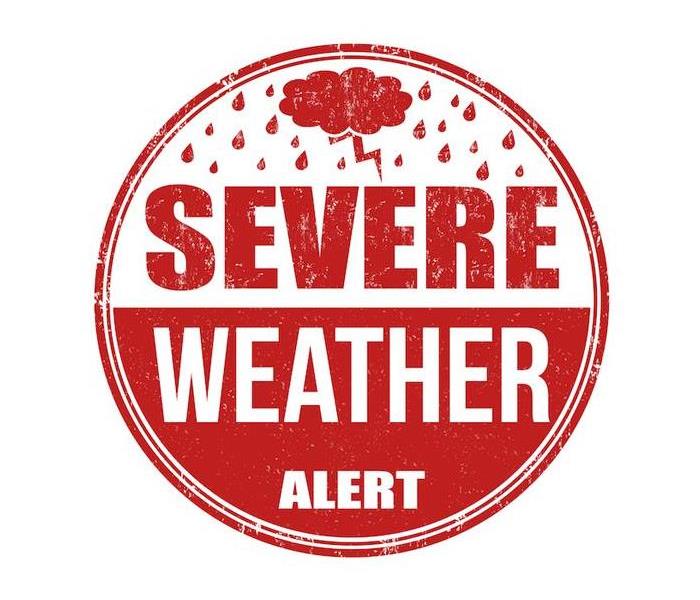Interpreting Storm Alerts in Wisconsin | SERVPRO® of Barron, Dunn & Rusk Counties
7/26/2022 (Permalink)
 If you suspect any damage to your home from a recent storm, call SERVPRO of Barron, Dunn & Rusk Counties.
If you suspect any damage to your home from a recent storm, call SERVPRO of Barron, Dunn & Rusk Counties.
Weather can cause many different scenarios that produce distinct kinds of alerts. There are actually more than 42 different kinds of weather alerts, and those alerts are even further categorized into seven different subsections.
Making sense of all of these alerts can be confusing in a high risk situation like impending weather.
The good news is that not all 42 alerts are pertinent to our counties, so knowing the few that are common in our area is important so you can be prepared and know when taking shelter is necessary.
Weather forecasts are simply predictions of how a particular weather system will develop, so forecasters have to use a wide variety of tools at their disposal to make the best prediction possible.
The National Weather Service is responsible for the overall forecasting across the nation, but they have six regional offices spread out around the United States to help localize specific areas. Our office is in the Central Region, located in Kansas City, Missouri.
Meteorologists and forecasters use a combination of data points from radar, seismic activity and even solar patterns to create their forecasts and then base alerts off of those. Their goal is to use all of those resources to make their predictions as accurate as possible.
The most basic knowledge everyone should have about alerts is the difference between a “watch” and a “warning.” This language is consistent across all weather alerts, whether it be a flood, winter or summer storm, or a tornado.
Watches are issued when a storm moves into our area that has all of the potential to turn into a dangerous situation. They normally cover a much larger geographical area than a warning as weather can shift slightly around as it moves. When you are under a watch, it is imperative to stay connected to our local weather authorities and stay aware of any changes in the sky.
Warnings are issued when there is a certainty of dangerous weather in our area. Warnings cover a much smaller area and are highly localized to where the danger is on the ground. When a warning is issued, you must take shelter immediately and keep any weather channels or alerts on during the duration of the storm.
The most common weather alerts that we will encounter in Barron, Dunn and Rusk counties are severe storms in the heat of the summer and winter storms or blizzards in the winter. Storms of this nature can be highly dangerous and impact travel significantly, so it is important to always know what your plan will be if a watch or warning is issued.
If you have enough notice in advance of bad weather, you can take some preventive steps to help protect your storm from damage when the weather comes to town. Once you understand the difference between alerts, you can take a couple of more steps to help protect your home during severe weather.
Cleaning out your gutters and securing your outdoor furniture can help minimize water damage and debris damage during storms. It is also a great idea to periodically check your emergency kit to make sure it is fully stocked.
When the storm is over, document any damages to your home with pictures and give us a call at SERVPRO of Barron, Dunn & Rusk Counties when you are ready to tackle the damages. We are here for you and will help create your restoration plan.
The more you know about potential weather alerts in western Wisconsin, the safer we can all be. Take the time to learn about the different hazards and scenarios so you can keep your house, your family and yourself safe each season.
Experienced storm damage to your home or property? Contact us today for a quick response!






 24/7 Emergency Service
24/7 Emergency Service